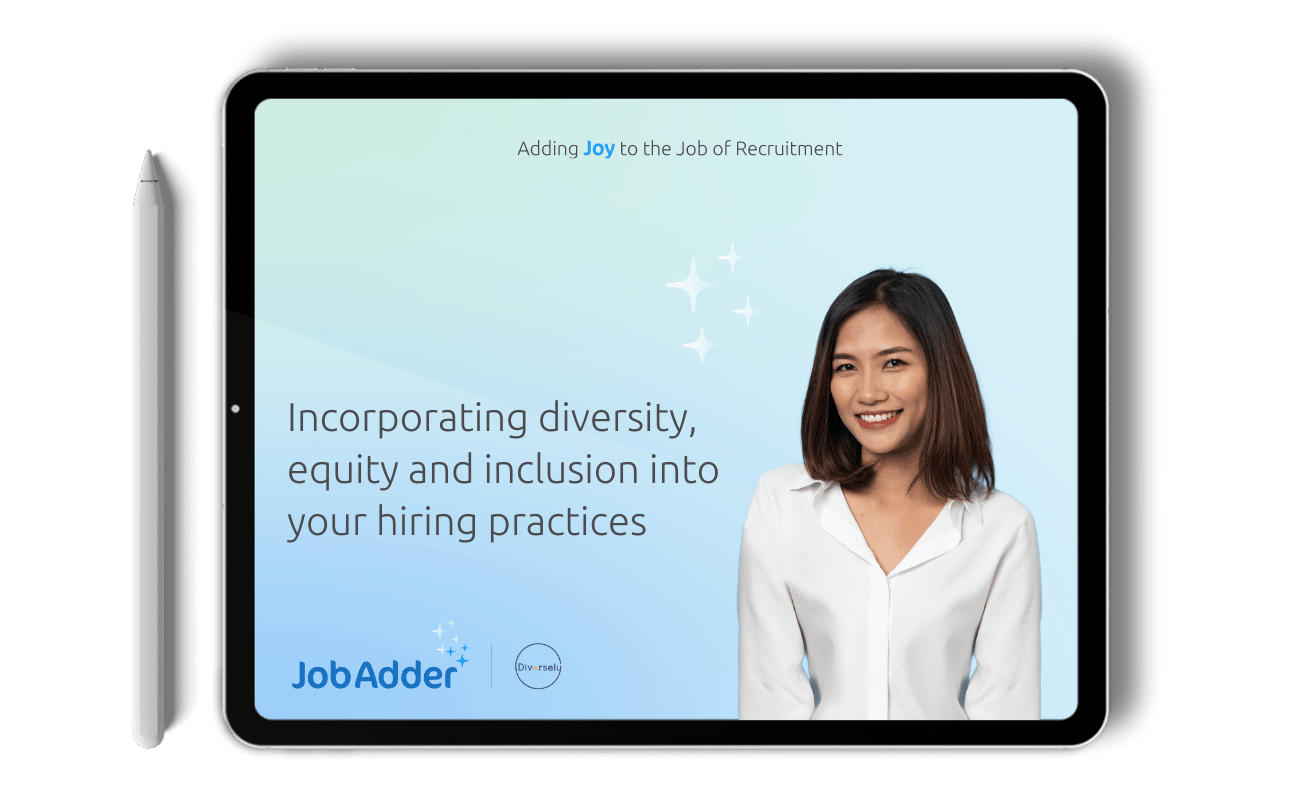Recruitment Blog
How to encourage active listening in your recruiters

Active listening is one of the most important skills to instil in your recruiters.
Sales skills, time management and other areas all have their place. However, if your recruiters can practice active listening and show empathy to clients and candidates, you’ll see them go from strength to strength.
That’s because having a more consultative approach that emphasises active listening focuses on building rapport and relationships with clients and candidates, rather than simply selling.
Candidates will appreciate the fact that they aren’t feeling “sold” as they try to find their next position and clients will see that your empathetic recruiters are serving as consultants and advisors, rather than salespeople.
Let’s define active listening next before we provide tips for how to encourage this vital skill in your recruiters.
What is active listening?
Many people think listening entails using our ears to simply pick up on sounds. Our readers might know the old joke that salespeople stop talking just long enough to think about what they want to say next.
Active listening, on the other hand, is the act of making a conscious effort to take in the true meaning behind the words other people say during conversations.
What does that mean exactly? It means avoiding all distractions while conversing with others. It involves developing the skill to read between the lines, where you learn to pick up on non-verbal signals to understand the emotions behind the words.
Active listening is also the process of using your body language to signify that you’re fully engaged in understanding the other person. Look them in the eye and nod your head as you listen so they see that you’re “getting” them.
Training your recruiters in this skill will change the culture inside your recruitment agency, reinforcing the importance of recruiters serving as trusted consultants rather than salespeople. Clients and candidates will feel “heard” and they won’t want to work with any other agency that comes across as too “salesy”.
So, how can your recruitment agency encourage active listening in your recruiters and nurture this skill for long-term success?
Show recruiters how active listening helps them sell
All recruiters love to find ways to become more efficient.
They’ll love it if you teach them active listening skills and show them how it:
- Saves them from spending a lot of time with the wrong candidates
- Builds their relationships with clients
- Nurtures their interpersonal skills
Teach them how listening more and talking less leads to identifying whether they’re working with the right or wrong people.
Use your knowledge of active listening when hiring recruiters
You can’t teach everyone to become a great active listener.
Some people might not be able to pick up the nuances involved or you may not have the resources available to dedicate to ongoing training.
Why not look for people who already have the skillset during your recruiter hiring process? You can teach sales and closing skills more easily than how to show empathy.
Encourage a non-judgmental process
Some recruiters find it difficult to avoid making instant judgments about a candidate’s fit for particular openings. They might also make quick judgments from client feedback.
Help them use active listening skills to receive information without the need for immediate conclusions. Keeping an open mind is another way to define this active listening skill.
Stay in the moment
Train recruiters on the importance of slowing down when working with clients and candidates. It’s effective to step back, allow others to talk, pay close attention to what’s said and stay in the moment without thinking about what to say next.
Staying in the moment also involves:
- Nodding to reveal true engagement
- Maintaining eye contact
- Mirroring the other person’s body movements
Treating candidates with empathy breeds success
Recruiters can build rapport with candidates by active listening and using the consultative approach.
Empathy is an essential part of the recruitment process, your recruiters should consider how their candidates and clients are feeling and understand what their challenges and concerns are so they can better serve and support both parties.
You’ll discover that candidates who feel heard without sensing a sales pitch or a disingenuous attempt to push them into the wrong role will be great advocates and long-term prospects for your recruiters.
Ask questions
Teach your recruiters to ask open-ended questions.
This encourages more conversation by getting clients and candidates to expand on their thoughts. Asking questions helps to clarify any points already made by the other person.
This skill reveals how interested a recruiter is in what others have to say and elicits all types of useful facts and ideas.
Pay attention to body language
Effective active listening includes looking beyond what’s said by a candidate or client. Body language provides clues into the deeper meaning behind what others are communicating.
For example, if a person continuously avoids eye contact, they may be extremely nervous or possibly hiding something. A recruiter needs to dig down further and utilise empathy to uncover which of those two things are occurring.
Recruiters should provide gut-level reactions
Good active listeners develop the ability to see beyond the numbers, measurables and data when analysing candidates.
Most people have no problem interviewing others and ticking off boxes based on answers provided.
It’s an entirely different thing to arrive at a gut-level reaction about whether the candidate fits company culture, possesses true passion or can figure out problems on their own.
Ask recruiters what their high-level views of candidates are. Get them to rate the following motivators for each candidate:
- Title or position
- Job satisfaction
- Quality of life
- Commute
- Compensation
- Skills development
Have recruiters perform follow-up calls if they struggle to answer you properly. They must go back and use active listening skills with their candidates to understand their motivators and needs.
Allow for silence
If you have extroverted recruiters on the team, you should know that they might struggle through moments of silence.
Those moments might feel like an eternity for them. Train them on how to leave room for quiet moments, gather their thoughts and respond thoughtfully. This also gives space to candidates and clients to make additional points or take a breath.
Use role-play scenarios
Role-playing is one of the most effective ways to practice active listening skills. Get recruiters together and ask one of them to call the other with a mock job description.
They should go through a practice interview and test all of the above active listening skills.
Conclusion
If you train your recruiters on how to improve their active listening skills, then you should see some measurable improvements throughout your organisation over time.
Your recruiters will be able to better connect with candidates and clients, build strong relationships with both and act as advisors and consultants rather than salespeople.
Want to improve diversity in your recruitment? Access our free eBook with Diversely now.

Related blog posts

By Melinda Jennings 2024 has been a big year for talent leaders. Candidate applications are at an all-time high – …
Ready to get started?
Talk to one of our friendly team members


